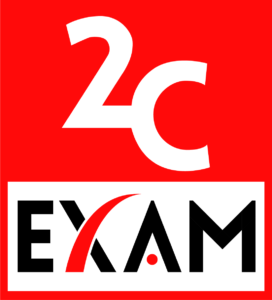When purchasing insurance in Hong Kong, there are generally two types of insurance salespeople that you may encounter: insurance agents and insurance brokers.

What are the differences in their roles or responsibilities? Do they need to register with recognized organizations before working? And what are their professional qualifications?
This article will answer these questions one by one.
In Hong Kong, both companies and individuals must hold an insurance license to conduct insurance business.

Licensed insurance intermediaries in Hong Kong are divided into licensed insurance agents and licensed insurance brokers.
1.Licensed Insurance Agents

Licensed insurance agents include licensed individual insurance agents, licensed insurance agency and licensed responsible officers (agents).
Licensed individual insurance agents and licensed insurance agencies are authorized agents appointed by authorized insurers (i.e. insurance companies), with the insurance companies being their principals. They promote, offer advice, and make arrangements for policies provided by the appointed insurance companies.
Licensed responsible officers (agents) are agents appointed by licensed insurance agencies (i.e. licensed insurance agencies are their principals). They promote, offer advice, and make arrangements for policies provided by the appointed insurers of licensed insurance agencies.
In addition, insurance agents are divided into independent agents and employed agents according to the contract signed with insurance companies.
Employed agents have an employment relationship with a single insurance company and may receive a base salary, as well as commissions and bonuses.
Independent agents do not have an employment relationship with the insurance company they represent. They are appointed to sell insurance products and provide after-sales service by the insurance company and earn commissions from each policy arranged.
Independent licensed individual insurance agents cannot represent more than four insurance companies at the same time, with a maximum of two being life insurance companies.
Both independent and employed agents can represent insurance companies, explain the application process to customers, prepare and submit relevant insurance documents, manage policies, and assist policyholders in making claims.
The commission of insurance agents is calculated as a percentage of the premium, with the amount usually decreasing as the policy term gets longer. For example, for a 10-year policy, the agent may receive a commission of about 25% to 40% of the premium in the first year, which will decrease to about 7% to 5% in the second year, and will be 0% in the fifth or sixth year.
2.Insurance Brokers

Licensed insurance brokers include licensed insurance brokerage firms and licensed business representatives (brokers).
Licensed insurance brokerage firms provide advice on policies to clients and act as their agents in handling policy-related matters, including the purchase, negotiation, and arrangement of policies with insurance companies. They can collaborate with multiple insurance companies simultaneously, acting as a liaison between the policyholder and the insurance company, and recommend and sell insurance products based on the policyholder’s needs.
Licensed business representatives (brokers) are appointed representatives of licensed insurance brokerage firms (i.e., representing licensed insurance brokerage firms). In this capacity, they provide advice on policies to clients and represent the licensed insurance brokerage firm that appointed them in handling policy-related matters on behalf of their clients.
In common parlance, an insurance broker usually refers to a licensed business representative of a licensed insurance brokerage firm, also known as a broker.
The income of insurance brokers in Hong Kong typically comes from commissions paid by insurance companies, not clients. Insurance brokerage firms usually receive a one-time commission from insurance companies after the policy takes effect. For example, signing a new 10-year policy might yield a commission of about 40%-70% of the premium. If the policyholder cancels or reduces coverage within a specified period, the insurance company may also claw back the commission.
In summary, in everyday life, the three main types of licensed insurance intermediaries that we interact with are: licensed individual insurance agents appointed by insurance companies, licensed business representatives (agents) appointed by licensed insurance agency firms, and licensed business representatives (brokers) appointed by licensed insurance brokerage firms.
The primary responsibilities of both licensed insurance agents and licensed insurance brokers are to assist policyholders in understanding, learning about, and buying and selling insurance products.

Among them, licensed insurance brokers represent policyholders, while licensed insurance agents represent insurance companies; licensed insurance brokers can sell products from different insurance companies; licensed insurance agents can only sell products provided by insurance companies; licensed insurance brokers provide fewer after-sales services for insurance companies; licensed insurance agents can usually provide after-sales services directly.
Insurance brokers have an advantage in product diversity, enabling policyholders to access more market information. In contrast, insurance agents represent one or several insurance companies, and they may have a deeper understanding of the company’s insurance products. They may also be more direct and efficient when handling policy or claims-related matters. Both rely on their professionalism and experience to judge and select suitable insurance products for their clients.
Both insurance brokers and insurance agents rely on commissions as their primary source of income.
Finally, it should be noted that individuals or companies cannot act as both insurance agents and insurance brokers simultaneously.
You can verify their identities in the Licensed Insurance Intermediaries Register (Individual).



How can we help?
2CExam provides HKSI LE, IIQE, EAQE and SQE related exam preparation materials. We sell mock question banks for HKSI LE Papers 1, 2, 3, 5, 6, 7, 8, 9, 12 in Chinese and English; and bibles for HKSI LE Papers 1, 2, 6, 7, 8 in Chinese. We also offer 1 on 1 tutorial services. Besides, we have also made free tutorial videos for HKSI LE Papers 1, 2, 6, 7, 8, 12 and posted on public channels such as Youtube/ Bilibili/ Tencent/ Iqiyi. 2CExam has been an exam training expert for years. Should you need any help please visit www.2cexam.com or contact us through:
Phone +852 2110 9644 Email: [email protected] Wechat: hk2cexam WhatsApp: +852 9347 2064
Please support us by leaving comments and likes if you think this article helps you!
You can scan or click on the QR codes to visit our social media.
Latest Article
Categories
過往文章
Contact US
-
Phone:
+852 2110 9644
-
Email:
-
WhatsApp
+852 9347 2064
-
WeChat
hk2cexam
Interesting Articles
Is the IIQE paper based exam or computer based exam easier? Which exam is better to partake in?
Many people are curious about the differences between the IIQE’s computer-based exam and the paper-based exam. As per the two exams’ content, they are pretty much identical. The two exams use the same Study Guide, the exam questions are drawn in the same question bank. Some people say that they have taken a…
Is the HKSI paper-based exam or the computer-based exam easier? Which is better to partake in?
Many people are curious about the differences between the HKSI LE’s computer-based exam and the paper-based exam. As per the two exams’ content, they are pretty much identical. The two exams use the same Study Guide, the exam questions are drawn in the same question bank. Some people say that they have taken…
What are the differences between a computer-based and paper-based exam for the Estate Agents / Salespersons Qualifying Examinations?
There are differences between the computer-based exam and the paper-based exam? Some people say that the computer-based exam / paper-based exam will be easier? Many people are curious about the differences between the EAQE/SQE’s computer- based exam and the paper- based exam. As per the two exams’ content, they are pretty much…
What is the difference between the computer-based exam and the paper-based exam of the Insurance Intermediaries Qualifying Examination
Many people are curious about the difference between the IIQE’s computer-based exam and the paper-based exam. First of all, IIQE does not hold many paper-based examinations. In many cases, it will only hold paper-based examinations for Paper 1. If you have special needs, such as not being proficient with computers, or having a vision…
What are the differences between the computer-based exam and the paper-based exam of the Licensing Examination for Securities and Futures Intermediaries (LE)?
There are differences between the computer-based exam and the paper-based exam? Some people say that the computer-based exam / paper-based exam will be easier? Many people are curious about the differences between the HKSI LE’s computer-based exam and the paper-based exam. First of all, HKSI does not hold many paper-based examinations. In many…
Which Licensing Examination for Securities and Futures Intermediaries exam paper should I partake in?
If you want to work in the front line of the securities industry, you have a good chance of needing to take The Licensing Examination for Securities and Futures Intermediaries. As for what test papers you need to take, first of all, you need to know that the number of the exam paper has…
If I have an overseas professional qualification, can I obtain a SFC securities license simply by recognising my prior qualification
Some students have worked in the securities finance industry outside of Hong Kong, and now they also need to obtain a securities business license in Hong Kong. Can work experience in the securities industry abroad help you waive the exam and allows a candidate to directly apply for the securities license from the Securities…
In order to obtain exemption from the HKSI LE exam or SFC’s academic requirement, how is relevant industry experience considered?
After reading the “Competency Guidelines” issued by the Securities Regulatory Commission, some students may have a big question mark on “Relevant Industry Experience”, “have X years of experience in the past X years”, and then ask us what kind of experience are counted as industry experience so they can be exempted from the Licensing Examination…
Which insurance intermediary qualifying examination paper should I take?
If you want to work in the front line of the insurance industry, you have a good chance of needing to take the Insurance Intermediaries Qualifying Examination (IIQE). As for what exam papers you need to take, first you can check whether you meet certain conditions to be exempted from specific exam paper combinations…
The difference between IA Responsible Officer(RO) and technical representative (TR)
Regulatory Organisation Before explaining the difference between Responsible Officer and Technical Representative, you must first know that there is only one regulatory agency that regulates companies engaging in insurance business: the Insurance Authority (IA). All the powers concerning licensing matters, supervision tasks, sanctions and investigations of intermediaries of insurance intermediaries, insurance companies and insurance…







